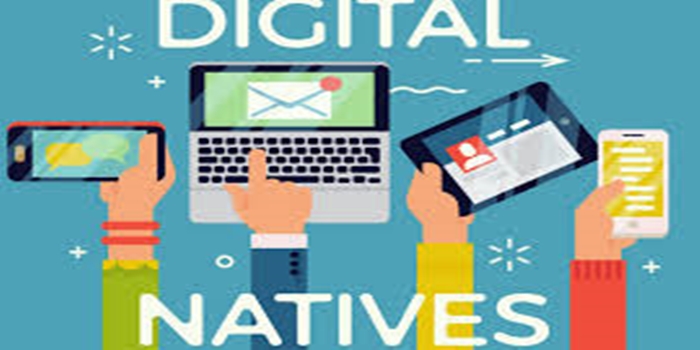In this article, we discussed the meaning of digital natives, the examples, the features, furthermore we also talked about the benefits.
Definition
A Digital Native is a person who grew up with the presence of digital technology or in the information age. Having grown up in IT’s presence, digital natives are comfortable with and fluent in technology.
The term “digital native” refers to people who were born during or after the rise of widespread digital technology, meaning they have grown up with tools like the internet, smartphones, and computers as an integral part of their lives.
Examples of Digital Natives:
Millennials: Individuals born between 1980 and 2000
Generation Z: Individuals born after 2000
Teenagers and children in developed countries: Many young people are considered digital natives because they primarily communicate and learn through computers, social media, and texting.
The Features of Digital Natives:
Early Exposure to Technology:
Digital natives have grown up with computers, the internet, and mobile devices, making them naturally comfortable with technology.
Multitasking & Rapid Task-Switching:
They are adept at handling multiple tasks and switching between them quickly, a skill honed by the constant flow of information and communication in the digital world.
Intuitive Learners:
They prefer hands-on, interactive learning methods and may not always respond well to traditional, linear approaches.
Preference for Condensed Communication:
They favor fast and concise communication methods, such as short text messages, images, and videos, often using social media platforms for communication.
Digital Literacy:
They are highly literate in information and communication technology (ICT) and gather information through digital devices.
Social Media Usage:
They actively use social networks and are comfortable with online presence and connectivity.
Adaptability to New Technologies:
They readily adapt to new technologies and innovations, embracing the constant evolution of the digital landscape.
Flexible Learning and Work Environments:
They prefer flexible and dynamic environments, whether in education or the workplace, and value opportunities for growth and challenges.
Emphasis on Transparency and Authenticity:
They value transparency, authenticity, and social responsibility, and expect brands to act ethically and sustainably.
The Benefits of Digital Natives:
Enhanced Digital Literacy:
Digital natives are comfortable and proficient with technology, making them adept at navigating online platforms, using various digital tools, and accessing information efficiently.
Strong Multitasking Skills:
They can effortlessly manage multiple tasks and information streams simultaneously, a skill highly valued in today’s fast-paced world.
Natural Inclination Towards Online Collaboration:
Digital natives are comfortable with online communication and collaboration, making them effective team players in virtual environments.
Proactive Problem-Solvers:
They are comfortable using technology to find solutions and are adept at troubleshooting problems using online resources.
Continuous Learning and Improvement:
Digital natives are open to new technologies and are always seeking ways to improve their skills and knowledge through online resources and platforms.
Global Awareness and Cultural Understanding:
Online resources and platforms allow digital natives to explore different cultures, languages, and perspectives, fostering empathy and global citizenship.
Creative and Cognitive Development:
Educational games and apps can improve problem-solving skills, memory, and attention span, while creative apps can unleash artistic expression and encourage digital storytelling.
Streamlined User Adoption and Change Management:
Digital natives are accustomed to change and new technologies, making them adaptable to new systems and processes.
Improved Efficiency:
this are more likely to use technology to streamline processes and improve efficiency in their work and daily lives.
Conclusion
Digital Native” most commonly refers to those born at the end of the twentieth century and into the twenty-first century. Digital natives began interacting with digital technology at a young age and are unfamiliar with life without tools such as the Internet, cell phones, and computers.
READ: Digital Marketing Tactics for Teaching Millennials Consumers


